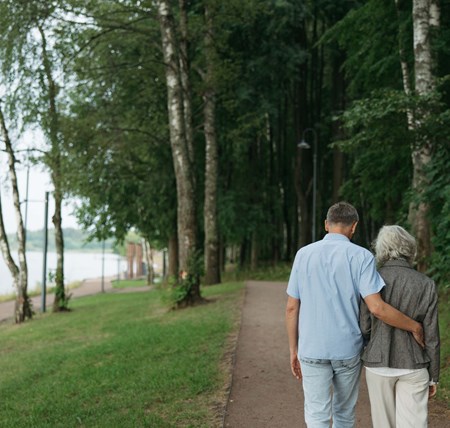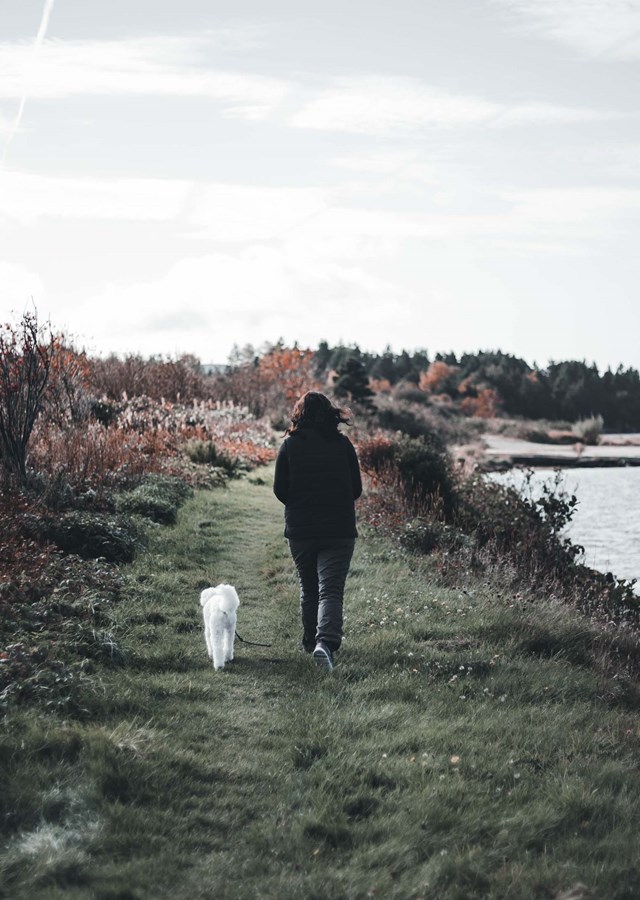How to support yourself while you grieve
Be kind to yourself while you grieve. Remember, the healing process takes time, and we all grieve differently. Here are some ways you can look after yourself while you grieve:
- Allow yourself to feel emotions
If you feel sad and need to cry, let it out. It’s important to grieve for your loved one and crying can help to release these emotions. If you feel angry, try and release this emotion in a safe way, such as punching a punch bag or pillow. Try writing down your feelings – don’t bottle them up. - Talk about your feelings
Talk to someone you trust about your feelings, such as a partner, a close friend or a family member. If you don’t feel you can open up to anyone, then chat to us online or call our helpline on 08081 311 333. - Talk about the person
Don’t be afraid to talk about the person who has died. While they may no longer physically be here, you can keep their memory alive by talking about them, sharing memories and stories with others. Not mentioning them can leave you feeling isolated and alone in your grief.
- Take care of yourself
Try as much as possible to eat a healthy, balanced diet, get enough sleep (or rest if you can’t sleep) and exercise. Find more self-care tips here. - Keep active
It’s easy to feel like you don’t want to do anything when you’re grieving but it’s important to keep a routine and do some of the things you would normally do if you can. This will help you stay active and can even distract you for a short while. - Stay connected
Try and make an effort to stay in contact with other family members or friends, whether it's going for a coffee or catching up over the phone or video calls. You might not always feel like speaking to people but it does help (them and you) so it’s important to make the effort. - Avoid short-term ‘fixes’
Avoid relying on alcohol or taking drugs as these don’t solve anything and can make you feel worse in the long term. - Allow yourself to adjust
Losing someone close to you is incredibly hard. It may take time but you will need to adjust to the person not being there in the same way as before. If you lived with them, you may now have to learn how to do tasks normally done by the person you lost, such as cooking, DIY or finances. Don’t be afraid to ask for help if you need it, and remember that we’re always here for you. - Do what you can on special occasions
The first occasions without your loved one, (e.g. birthdays, Christmas, anniversaries), will always be the hardest. Think of how you can make this easier for yourself and make sure you connect with friends and other family members so you can support each other. Do what is right for you whether that’s keeping busy or setting some time aside to remember them quietly.
Life won’t be the same after losing your loved one, but in time you will create a new normal. Many people find that the bad days eventually become fewer, and while they still miss the person they lost it is possible to find enjoyment in life. This can make us feel guilty, but closure is part of the bereavement process and helps us to move on with our lives while keeping the memory of our loved ones alive.
If you’ve recently lost a loved one, we are here for you. We can’t tell you this is going to be easy, but we’re here to support you if you need us. Chat with us online or call our helpline on 08081 311 333.









